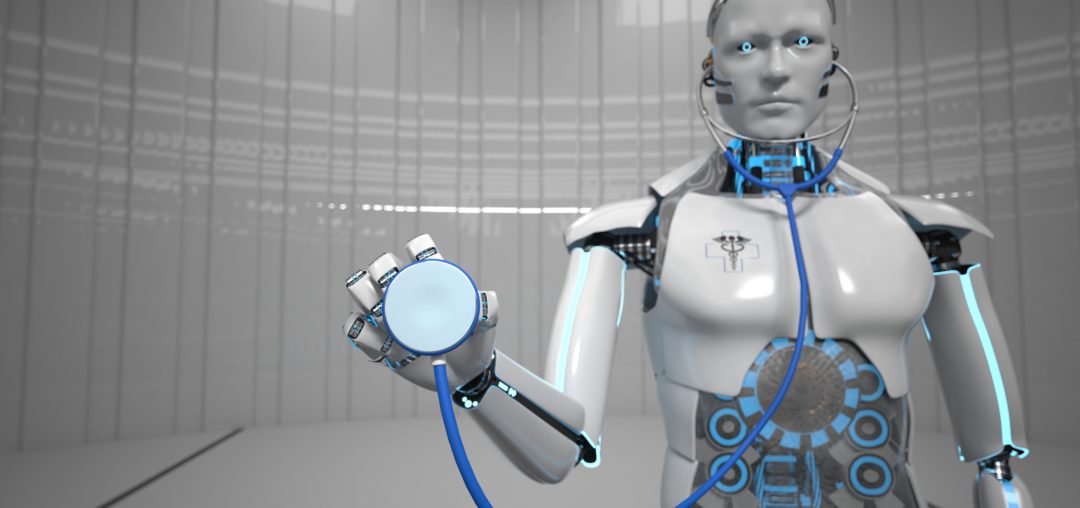Artificial intelligence has the potential to transform healthcare and the pharma industry; making health services more predictive, more effective and more equitable.
But can AI’s potential be realised, and what can chief information officers and clinical chief information officers do to get the most out of the new technology?
The Healthcare Information and Management Systems Society (HIMSS) Executive Leadership summit last month attended by NHS CIOs and CCIOs, leaders from NHS England and NHS Digital and other health IT innovators, expressed the potential AI-driven data analytics has in supporting the NHS’s Five Year Forward View, narrowing gaps in health provision.
The summit discussed how AI could address the health and wellbeing gap by predicting which individuals most risk illness, allowing the NHS to target treatments accordingly, with AI giving health professionals and patients bespoke diagnostics and treatments. It was also noted that AI could help address the efficiency and funding gap by automating tasks, triaging patients to the most appropriate services and allowing them to self-care.
Data-driven solutions solving the mental healthcare crisis
For AI to take such a critical role, we need the highest levels of data security, and we need faster, more actionable and linked data, linking the NHS’s disparate organisations. Speaking at the HIMSS summit, Amy Galea, deputy director, Transforming Health Systems, NHS England said: “The NHS is more like a collection of organisations. Linking data could give us the potential to be a truly National Health Service …(and) Integration is not just about merging services, it’s about understanding what different cohorts of people within a population need and then thinking about that pathway from beginning to end.”
The potential for linked data has been realised at the highest level. In a speech given last year, the prime minister challenged health charities, the NHS and the artificial intelligence (AI) sector to pool data to transform the diagnosis of chronic diseases, with the aim of using AI to prevent over 20,000 cancer-related deaths each year by 2033.
Some partnerships between AI global leaders and trusts can be highly effective. For example, Google DeepMind has collaborated with Moorfields Eye Hospital to develop and use an algorithm which identifies eye conditions.
And in pharmacy, the electronic prescription service (EPS) allows a GPs prescription to communicate with data driven AI to inform vending machine-like robots to dispense medicine with extraordinary speed and accuracy.
Pharmacy2U, the UK’s biggest online pharmacy, will be opening a new dispensing facility in Leicester which will bring the company’s dispensing capacity up to 7.5 million items per month, servicing the increasing demand for NHS repeat descriptions.
Yet there is still a need for a uniform approach to data analytics because many healthcare organisations still rely on the piecemeal AI applications arising from individual providers, rather than on solutions from within the NHS itself. Furthermore CIO’s and CCIO’s need to be at the forefront of AI implementation in data driven healthcare, as recognised by Health Secretary Matt Hancock who said NHS chief executives should “be asking serious questions” of themselves if their board does not include a chief information officer.
AI and machine learning needed to improve the healthcare industry
But once in the boardroom what should CIOs do? Currently, CIOs are not proactive enough in installing and implementing AI in their organisations. Gartner’s 2018 CIO Agenda Survey revealed that only 4% of CIOs have already introduced AI in their organisations, and that less than half of them have developed plans to deploy it. To enable effective AI deployment, CIOS and CCIOs must:
• Advocate AI training to create IoT and cyber security solutions.
• Get involved in business intelligence and business analytics to drive insights for digital services, creating more joined up thinking between the CIO and other parts of an organisation.
• In line with the recommendation of the Wachter review, build an interoperability of systems to migrate data from one system to another. This would allow for compliance with General Data Protection Regulation with rules regarding data portability.
• Support the creation of an open source software protocol across the NHS, meaning that once one hospital had created a solution, it could be deployed across many hospitals. This would enable data transmission and analytics without the risks of a centralised dataset.
• Understand that when deploying cloud and other forms of distributed computing, it’s essential to ensure consistency of services and experiences to standardise the delivery of care.
• Don’t be seduced by the rapid growth of deep neural networks when simple machine learning could be best for more process driven structures. AI developments in IoT and in edge computing will continue to lead boardroom discussions, as will ever greater levels of machine autonomy, but huge progress can be made through focusing on the interoperability of systems, which means having ‘shared’ data in one place which is consistently structured and analysed.
• AI in healthcare is genuinely exciting and will usher in a new era of treatments. Machine learning technology, coupled with big data, IoT and artificial intelligence, will automate more and more of the diagnostic process, transforming health systems worldwide.
Yet possibly the most underrated benefit of AI is its ability to amplify the human touch. Pharmacy2U has shown that AI is already being used to fulfil repetitive pill-packing tasks enabling greater volumes of repeat prescription pill delivery, freeing up high street pharmacists to deliver more advisory services and frontline care.
Encouragingly, Gartner has noted that 79% of CIOs report that digital business is making their IT organisations more “change-ready,” which suggests that now is a good time to reform IT organisations and processes to enable AI to be deployed to the best effect.








